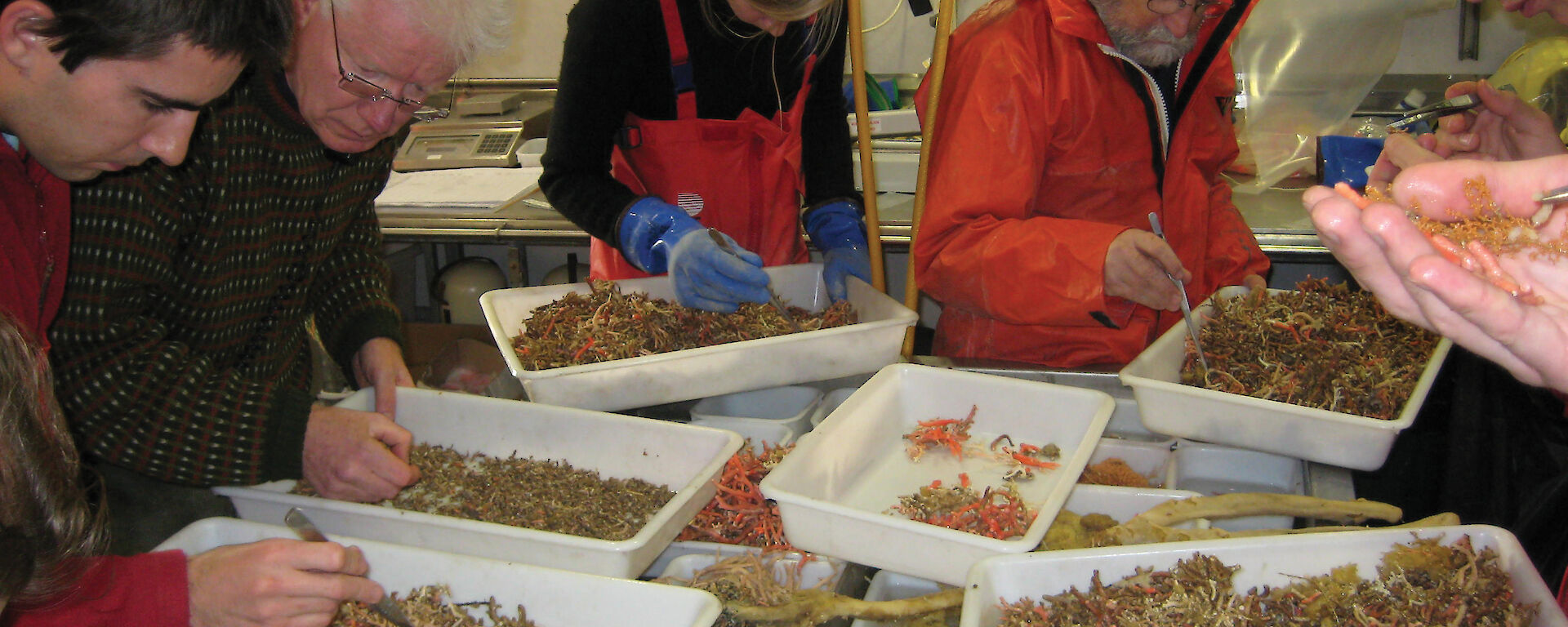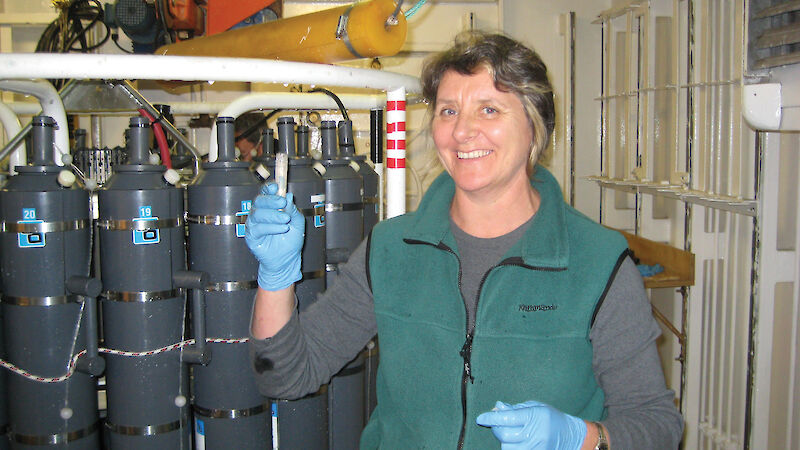Margot Foster is executive producer of ABC Radio National’s Bush Telegraph program. She spent six weeks with marine scientists on board the Aurora Australis as part of the International Polar Year ‘Pole to Pole’ project, which also involves Radio New Zealand, BBC and Radio Deutsche Welle. Margot posted an online illustrated diary and set up radio interviews with scientists, recorded from the ship via satellite phone.
When I ascended the gangway I knew only that there were two key research projects being undertaken — the Collaborative East Antarctic Marine Census and Climate of Antarctica and the Southern Ocean. On board I came to meet the 75 others who, in their various roles, ensured that invaluable data was gathered for both these and associated projects.
As the voyage progressed I had a growing sense that I was on board a kind of modern Beagle — we were documenting sea life in a part of the world not yet fully explored, we were looking upon habitat never seen before, and we were discovering creatures yet to be named.
I used the fact that I was a science novice to my advantage. To tell stories in a way that ordinary people (like me) could understand I treated the process like baking a cake – step by step, in logical order. I operated in the same way I do working as a radio producer – trusting that what interested me would likely be of interest to others.My daily diary was the repository of stories that resonated with me and became the springboard for recordings. I roamed the ship with my recorder and camera, trying to be where things happened, asking questions and having processes patiently explained.
I was surrounded by those who enriched the experience by readily answering every question I threw out — ‘Why do penguins have that comical waddle? How deep is ‘deep'? Why are creatures a more intense red the deeper they dwell? Why is that iceberg black?'
The greatest revelation was seeing science in action up close. I was swept along by the infectious enthusiasm of the scientists. The wet-lab after each trawl was always crowded with onlookers — checking to see what was brought up from the deep. No one was denied a look, explanations were offered, curiosities pointed out, and hypotheses raised and debated.
I wondered how unique it was to have this kind of collaboration. I was observing a holistic application of science with the geologist, biologist, oceanographer and electronic engineer all working together. I watched the close communication, the sharing of information and assistance and, as the rapport grew between chemists, modelers, ecologists, taxonomists, technical support and crew, I thought how much poorer the outcomes would be for each project without the cross-pollination of ideas and knowledge.The major legacy of the International Geophysical Year 50 years ago was the building of an infrastructure of stations on the Antarctic continent for the pursuit of science. In the International Polar Year, a significant part of the legacy will be the collaborations across disciplines, resulting from cooperative ways of working.
The best science on the voyage was that connected by multiple strands. Similarly, the best stories are those that connect with people’s hearts and minds. For me, explaining science is like building up a mosaic. There must be repetition; a telling of the story in many ways. The tiny pieces help make sense of the larger ones, which is why my stories included not only interviews with project leaders, but also the French fisherman who spent the trip mending the trawl nets, and pieces on the remarkable deck spa fashioned out of a fish tub and why two New Year’s Eve celebrations were held on board.
It’s that mix of stories that conveys something of what it is to work intensively on a dedicated marine research vessel in a remote and unpredictable environment. The better the work is understood, the greater the support for it, which is why the stories from the voyage must be shared and why the important work must continue.
MARGOT FOSTER
ABC Radio National



